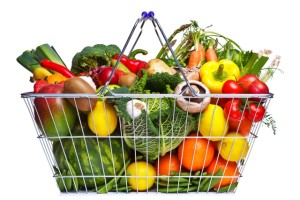Clean Eating Challenge
- Amanda Cleghorn
- Aug 2, 2015
- 2 min read
Updated: Jan 12

I challenged some friends to join me in undertaking ‘Clean Eating July:’ a month of eating solely wholesome foods, focusing on vegetable-laden, antioxidant-packed and protein-rich meals, while avoiding gluten and dairy products, sugar (including dried fruit), caffeine and alcohol. We aimed to consume healthy gluten-free carbohydrates such as rice, lentils, quinoa, beans or starchy vegetables amounting to just one portion per day and to eat up to two portions of fruit daily. At least 4 hours of exercise per week was also part of the programme and was certainly varied, ranging from gym classes and family bike rides to skiing and ice skating.
Each of us had different goals, including general ‘re-setting’ of eating habits, weight loss or reduced reliance on caffeine and it was interesting to see how differently each person approached the challenge. While some spent hours planning menus and preparing varied and elaborate meals, others chose to keep life simple by finding a few core meals which worked for them and eating them regularly throughout the week.
Those participants who were previously heavy caffeine consumers felt withdrawal effects for the first few days, but even non-caffeine drinkers were surprised to experience headaches and other symptoms after removing sugar, gluten and dairy from their diet. Weight loss was immediate and consistent over the four weeks for some people, while more gradual for others, but overall, everyone reduced weight and body measurements, as well as noticeably gaining energy and clarity of mind. Other benefits included more balanced mood, absence of pre-menstrual symptoms and clearer skin.
Breakfast and lunch can be quite challenging when avoiding carbohydrates and everyone quickly became bored of eating eggs! Smoothies are a good option, including nuts and seeds for protein, which leaves you feeling full for longer. Soup is also a winner for lunch, dinner or a snack and this indulgent tasting carrot and coriander soup recipe is a staple in our house. Carrots are one of the sweeter tasting root vegetables, but have an lower carbohydrate and sugar content compared to others (for example, per 100g serving, carrots contain 8g carbs and 3g sugar, while sweet potato (kumara) contains 18g carbs and 6g sugar).
This kind of programme is quite an undertaking and requires a certain level of commitment, time and organisation. However, the benefits can be huge and we all agreed that it is a useful exercise to review eating habits; to reduce reliance on certain foods and drinks which we know don’t allow us to function at our best; and to shop in different parts of the supermarket, while testing out some new recipes. It was also hugely beneficial to complete the challenge as a group, to share the highs and lows of the experience!
If you would like some help to embark on a personalised ‘clean eating’ programme, please book a consultation with Amanda Nutrition, to discuss your goals, set realistic guidelines and to receive plenty of meal planning and recipe ideas, along with supplement recommendations to support your body while undergoing this process.





Comments